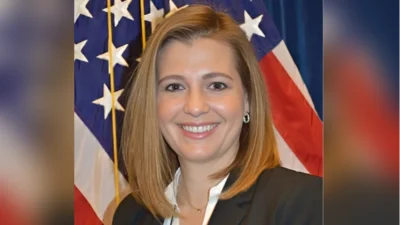GeoFutures, an initiative of Greater St. Louis, Inc., has released a new Strategic Roadmap aimed at further developing the region's geospatial technology sector. The updated strategy outlines steps to position St. Louis as a global leader in geospatial innovation and calls for the establishment of a dedicated organization to coordinate future efforts.
Dustin Allison, Interim CEO of Greater St. Louis, Inc., said, “Over the past five years, we’ve laid a strong foundation for the geospatial ecosystem here in St. Louis. We’ve seen tremendous growth that has established St. Louis as one of the country’s true centers for geospatial technology.”
He added, “With that foundation laid and with the opening of NGA St. Louis serving as a pivotal inflection point in the development of our geospatial sector, we are charting the course for the next phase of growth with a new GeoFutures Strategic Roadmap.”
The original roadmap was introduced in 2020 following the National Geospatial-Intelligence Agency’s (NGA) decision to build its headquarters in North St. Louis. Since then, it has guided growth within the sector.
The new plan sets out four main strategic priorities: talent development to meet workforce needs; accelerating research-driven innovation; supporting entrepreneurship and business growth; and building St. Louis’ brand as a global geospatial leader.
It also highlights three regional advantages: investment in North St. Louis around the NGA site; leveraging emerging technologies like Geospatial Artificial Intelligence (GeoAI); and drawing on strengths from related local industries such as agtech, life sciences, advanced manufacturing, and national security.
A key recommendation is to form an independent organization similar to 39North or BioSTL that would oversee implementation of these strategies across various stakeholders including startups, established firms, research institutions, government agencies, investors, workforce programs, community groups, and economic development organizations.
Mark Munsell of GeoFutures stated: “Our stakeholders made their feelings clear the geospatial ecosystem has grown and reached a level of maturity that it needs a focused organization to support its continued growth. We envision creating something similar to 39North or BioSTL, which work to grow St. Louis’ agtech and life sciences clusters, respectively.”
Over recent years, notable developments include founding the Taylor Geospatial Institute and Engine; launching Project Connect; expanding workforce training initiatives; and establishing Downtown North as an innovation hub for both established companies and startups in geospatial technology.
St. Louis’ focus on this sector aligns with broader efforts to make it a national center for defense technology. In 2024 Congress passed legislation supporting this goal through programs that may bring additional defense tech activities to NGA St. Louis.





 Alerts Sign-up
Alerts Sign-up